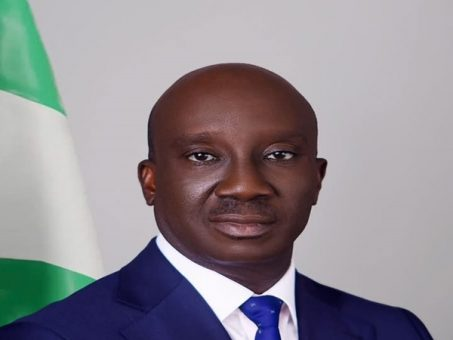Edo Defrays Domestic Debt by ₦30.6bn, Emerges Fiscal Discipline

The domestic debt profile of Edo State has seen a sharp decline, dropping from ₦113 billion in the fourth quarter of 2024 to ₦82.4 billion in the first quarter of 2025.
This ₦30.6 billion reduction over a span of just three months has positioned the state as a standout example of fiscal responsibility amid rising debt levels across the country.
The development was confirmed by the Chief Press Secretary to Governor Monday Okpebholo, Fred Itua, who described the significant debt reduction as a clear indication of the state’s commitment to prudent financial management. He noted that Edo’s performance contrasts sharply with that of at least 10 other Nigerian states that reportedly accumulated a combined ₦417.7 billion in new domestic debts during the same period, despite enjoying increased revenue allocations from the Federation Account Allocation Committee (FAAC).
Itua emphasized that Edo State’s approach was markedly different, underpinned by a governance philosophy built on restraint, accountability, and forward-thinking financial planning.
Governor Okpebholo, speaking at a recent economic forum, shed light on the policy reforms that contributed to the state’s improved debt position. According to him, his administration undertook a comprehensive overhaul of the state’s revenue collection system by empowering the Edo Internal Revenue Service (EIRS) with digital tools, enhanced compliance strategies, and broader citizen engagement.
These reforms, he said, have led to a significant boost in Internally Generated Revenue (IGR) and strengthened public trust in the government’s financial stewardship.
“We’re committed to growing Edo’s economy without mortgaging its future,” the governor declared. “Borrowing must be strategic, purposeful, and productive, not a default mode for governance. We are here to build, not to burden.”
Governor Okpebholo also highlighted the implementation of a value-for-money budgeting framework, which emphasizes results and prioritizes capital projects with measurable social and economic impact. He said the state has channeled its resources toward essential sectors such as rural electrification, road construction, education, healthcare, and digital infrastructure — ensuring that every naira spent delivers tangible improvements in the lives of citizens.
Edo’s rapid debt reduction, achieved while simultaneously expanding investments in development, is being viewed by analysts as a benchmark for other subnational governments navigating Nigeria’s complex fiscal terrain.
The state’s approach signals a shift away from unsustainable borrowing practices toward a more disciplined and outcomes-driven financial model.
As federal and state governments continue to grapple with rising debt and economic challenges, Edo’s success story may serve as a compelling blueprint for sustainable governance across the country.







